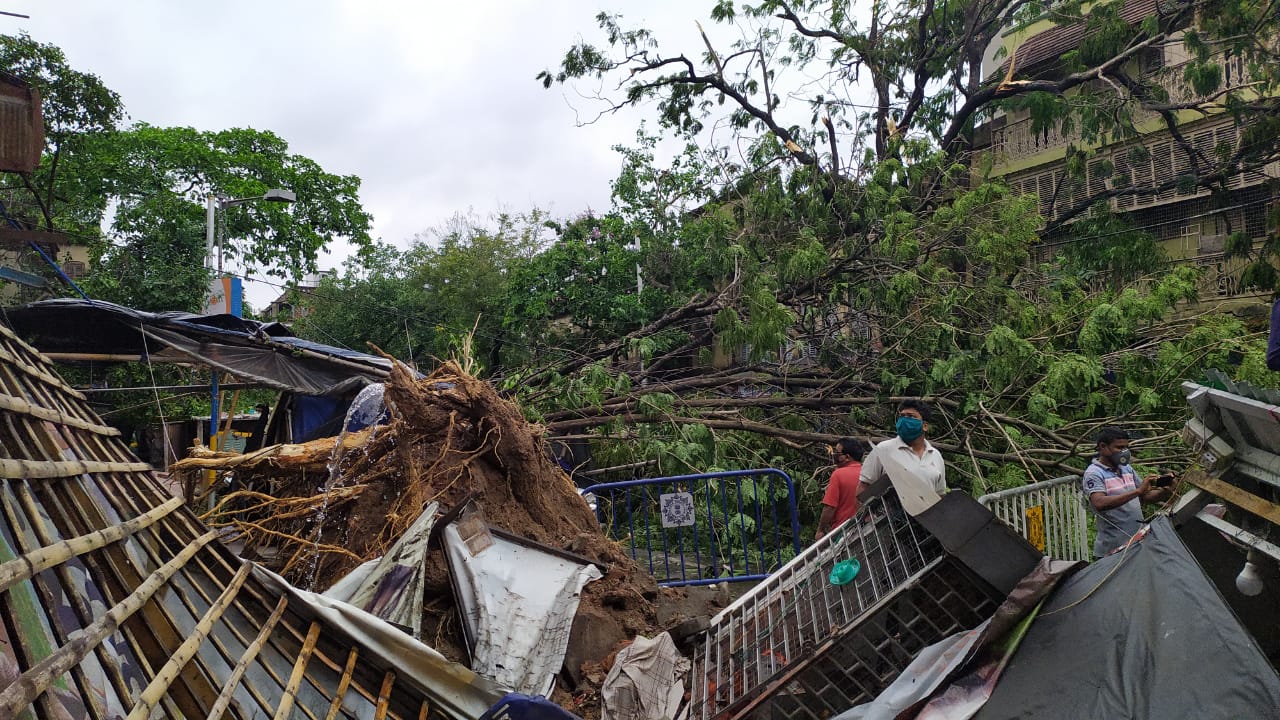“The number you are trying to reach is unavailable.”
On May 20, this message pushed people to tears across households in Bengal and elsewhere in India. Hundreds were reaching out on social media, looking for that single person who could put help them get in touch with their friends/family.
The disaster that Cyclone Amphan has wreaked upon us is terrifying. The anxiety of not knowing whether your loved ones made it through the storm has been torture. It’s a ‘Schrodinger’s News’ situation, where it’s neither good news nor bad news until phone networks are up and running again. Every minute of waiting feels like an actual pinprick.
Early Wednesday morning, police cars patrolled the neighbourhood, warning residents about the upcoming cyclone. The reports were already anticipating the ‘worst’ in the Bay of Bengal. Phones were being charged, candles were being bought but, all in all, the citizens were in a relatively calm state. West Bengal has lived through some terrible storms – Aila, Bulbul, Fani – so we were not expecting anything too different.
Little did we know that Amphan would be grossly unfamiliar, changing our lives forever.
As the wind picked up around 5 pm, we shut our windows tight, took everything off the clotheslines, and braced ourselves for some water seeping into our rooms. It was only when latches started flying off that we realised how unequipped we were for this storm. Some of us tied ropes to the windows, others tried sealing them shut.
But irrespective of all efforts, the entire house rattled and shook.
Every minute of the six excruciating hours, we heard the sound of glass shattering, parts of old buildings crashing, tin roofs moving frantically while being stuck in electric wires. When Baba asked us to gather our valuables, I realised that we were neck deep in an apocalyptic nightmare.
Later, it seemed like a dam had burst open. Across mainland Kolkata, basements were flooding; buildings were at least four feet deep in water; mud, sewage and tonnes of waste fashioned themselves into a trap for those wafting through the flood.
One by one, the power winked out in the buildings nearby. We were left in pitch darkness, with the Ganga flowing outside every window. No mop could successfully battle all the water streaming in. It almost felt like the cyclone was determined to consume us whole.

Photo: Sougata Mitra
In her late night speech, chief minister Mamata Banerjee sighed, “Shob shesh. Shorbonash hoye geche (Everything is finished. Extreme disaster has befallen us).”
We watched her usually undaunted spirit grow fearful at the thought of her state being wiped clean. With Bengal in the eye of the storm and wind speed rising to 130 kmph, devastation was inevitable. The districts of East Midnapore, South 24 Parganas and North 24 Parganas bore the most damage. The Sunderbans, and several other villages were reduced to a fraction of themselves. According to a North 24 Parganas district official, more than 5,200 mud houses collapsed in the said district.
None of us slept. The beeping phone lines would not let us. I have three of my loved ones stuck in some of the most damaged zones, with the network gone. I must have called a million times before I realised that nobody was going to answer any time soon. The wonderful man in Sunderban whom I am trying to reach, has been through this before. His house had washed away during Aila, along with his belongings. The lady I need to talk to in Basirhat, has lost so much to life, but braved her circumstances to save for the construction of a room for herself in the village.
Why must life keep testing those who have been tested a thousand times before?
The images are mind numbing. Nothing looks like it used to. Fallen trees have uprooted pavements, cut through buses, broken buildings; dish towers and electricity poles lie on the ground; ceilings have come apart under pressure; the bookstores at College Street have lost much of their merchandise, which now line the roads under muddy water.

Photo: Twitter
Between a pandemic and a storm, Bengal is struggling, and so are its people. Amphan put death two feet away from us. For six hours straight, it stared us right in the face.
But not everybody was lucky enough to maintain that gap – 72 people have been reported dead, and several hundred have been injured.
It is quiet here today. No music, no screaming children, nothing. It is as though everybody is indoors, calling their loved ones in the outskirts, hoping that they are alive, and have homes to return to.
Featured image credit: Sougata Mitra

